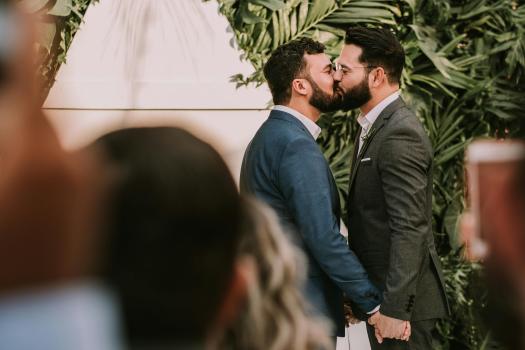One of the most important aspects of making a Will, not only if you're married is to ensure that your spouse is taken care of after your passing. A Will is an important legal aspect in any relationship including civil partnerships and applies equally to same-sex and cohabiting couples. For married couples, there are several tax incentives meaning lower inheritance tax upon your passing. For unmarried, cohabiting and same-sex couples, a Will removes the uncertainty of your partner's status.
Reasons to Make a Will When Cohabiting
Unlike married or civil partnership couples, a cohabiting couple has no legal status in the eyes of the law. There are several implications to this aspect, meaning a surviving partner could find themselves in a difficult position after your death. This could include:
- They may find themselves homeless if a home is not jointly owned as the property would be distributed as per the rules of intestacy. As your relationship has no legal status, then close family members will always get a share of the estate (if the partner is still married then this would pass to their husband/wife), or if divorced would pass to their children or descendants. This may mean the property needs to be sold. For more information about the rules of intestacy and a quick online checker tool, visit GOV.UK - Intestacy - who inherits if someone dies without a will?
- If the property is jointly owned as tenants in common, the share would still be distributed to the closest family members. This can often result in a difficult situation and can lead to court cases, part-rent payments, or having to potentially sell your share, or buy back the other half.
- If the property is jointly owned and you are considered joint tenants, your share of the house will automatically pass to the surviving partner. If you wish to pass your share of the property to someone other than your partner, then ensure that you own your property as tenants in common.
Reasons to Make a Will Before Marriage
A Will is an important aspect of any financial and legal arrangements you may have with your partner. Similar to cohabiting, there is no legal basis for the relationship to be recognised. This could result in:
- Your partner may not have a say in important subjects including funeral arrangements and financial matters such as the distribution of your estate.
- Any money in joint bank accounts or joint savings will be passed automatically to your partner, as long as the account has been opened for at least 2 years.
- Due to rules of intestacy, any money, possessions and equity will pass to the closest family members, who may or may not decide to make a provision for your partner. For more information about the rules of intestacy and a quick online checker tool, visit GOV.UK - Intestacy - who inherits if someone dies without a will?
Making a Will will allow you to detail your exact wishes, ensuring your partner is provided for and allow you to designate any other beneficiaries you may want to bequeath. You must seek professional advice, as there can be further complications arise which may need to be considered at an early stage, especially during the preparation of the Will. Our knowledgeable team can advise you on the best course of action and answer any questions you may have.
A Will that is made before a lawful marriage or a civil partnership will be revoked when the event takes place.
Reasons to Make a Will As a Same-Sex Couple
A same-sex married couple can take advantage of the same rights as any married heterosexual couple. This also applies to same-sex couples in Civil Partnerships. Similar to heterosexual couples who are either co-habiting or preparing to get married, a Will must be in place to ensure that your partner is looked after when you pass as relationships in these instances are not recognised by the law.
Reasons to Make a Will As a Married Couple or Civil Partners
Married couples or civil partners may leave all assets to the surviving partner without the burden of having to pay inheritance tax.
In the 2020/21 tax year, the total estate (as long as all the estate is transferred) that can be left to a married partner is £650,000. When you pass, you leave 100% of your estate to your partner. Your allowance of £325,000, which is known as the ‘nil-rate band’ passes to your partner, which doubles their nil-rate band to £650,000.
At the start of the 2017/18 tax year, the 'nil-rate band' was enhanced to cover main residences which provides an additional allowance of £100,000 when the property is passed to a direct descendant. Additional allowances of £25,000 have been added each year, bringing the total up to £175,000 in the 2020/21 tax year. This means that a married couple or civil partners will have a joint £1 million inheritance tax allowance on their estates, with each spouse qualifying for the full nil-rate band of £325,000 each for a total of £650,000, plus a main residence nil-rate band of £175,000 each for a total of £350,000
Although this seems straightforward, it is still important to ensure you have a Will in place. The rules of intestacy are complex and there is no control over who receives certain assets. A Will ensures that your wishes are taken into account and any decisions around your assets can be legally in place before you pass.






